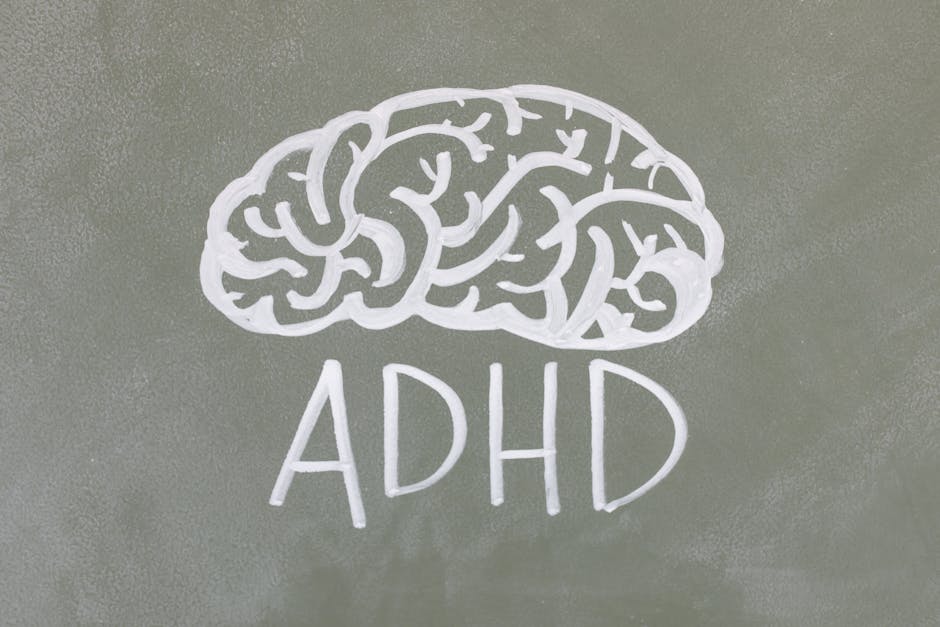Focus and attention are the cornerstones of personal growth and productivity. In a world overflowing with distractions, cultivating a sharp mind is more crucial than ever. At Self IQ, we believe that smarter growth leads to a stronger you. This comprehensive guide explores the science of focus and attention, why they matter, and how you can master them for lifelong success.
The Science of Focus and Attention

Photo by Tara Winstead on Pexels
Understanding focus and attention starts with recognizing how your brain processes information. Focus is the mental ability to direct your energy toward a specific task, filtering out irrelevant stimuli. Attention, on the other hand, is the capacity to sustain that focus over time. Neuroscientists have identified key brain regions—like the prefrontal cortex—that regulate these abilities, allowing you to concentrate, remember, and make decisions efficiently.
Modern life bombards us with constant notifications, urgent emails, and endless to-do lists. This environment challenges our natural attention span, making it harder to stay engaged with what truly matters. Research shows that attention is not a fixed trait; it can be trained and improved. By understanding the underlying mechanisms of focus, you can develop strategies to enhance it, leading to better performance in every area of life.
Factors such as age, sleep quality, stress levels, and even nutrition can influence your ability to concentrate. For example, lack of sleep impairs cognitive functions, while chronic stress depletes your mental resources. The good news is that with the right techniques, anyone can learn to boost their attention span and focus, regardless of their starting point.
Common Barriers to Focus and How to Overcome Them

Photo by Juan Pablo Serrano on Pexels
Before diving into strategies, it’s essential to identify the barriers that sabotage focus and attention. The most common culprits include digital distractions, multitasking, poor time management, and mental fatigue. Each of these obstacles can chip away at your ability to concentrate, leaving you feeling scattered and unproductive.
Digital distractions are pervasive. Smartphones, social media, and constant notifications fragment your attention, making deep work nearly impossible. Multitasking, while often seen as a productivity booster, actually reduces efficiency and increases errors. Studies have shown that switching between tasks can decrease overall productivity by up to 40%.
Time management issues, such as lack of prioritization or unclear goals, further dilute your focus. When you don’t have a clear direction, it’s easy to get sidetracked by less important tasks. Mental fatigue, caused by overworking or insufficient breaks, also impairs cognitive performance.
To overcome these barriers, start by creating a distraction-free environment. Silence your phone, close unnecessary tabs, and set boundaries with those around you. Practice single-tasking—focusing on one activity at a time. Break your work into manageable chunks and schedule regular breaks to recharge your mind. By proactively addressing these obstacles, you pave the way for sustained attention and sharper focus.
Proven Strategies to Improve Focus and Attention

Photo by Kampus Production on Pexels
Building focus and attention requires a blend of practical techniques and lifestyle changes. Here are research-backed strategies to help you master your mind:
- Practice Mindfulness: Mindfulness meditation trains your brain to stay present, reducing mind-wandering and improving attention span. Even a few minutes of daily mindfulness can rewire your brain for better focus.
- Time Blocking: Dedicate specific periods to deep work, free from interruptions. Use a calendar or timer to structure your day, ensuring you have uninterrupted focus for your most important tasks.
- Set Clear Goals: Define what you want to achieve before you start. Clear goals provide direction and motivation, making it easier to maintain attention.
- Brain Training: Engage in puzzles, memory games, or brain-training apps to enhance cognitive flexibility and concentration. Regular mental challenges keep your mind sharp.
- Physical Exercise: Regular physical activity boosts blood flow to the brain, improving cognitive functions like focus and memory.
- Healthy Sleep: Prioritize quality sleep to restore mental energy and enhance concentration during waking hours.
- Nutrition: Eat a balanced diet rich in brain-boosting nutrients, such as omega-3 fatty acids, antioxidants, and complex carbohydrates.
Experiment with these techniques to discover which ones resonate with you. Consistency is key—make focus-building habits a regular part of your routine for lasting results.
Mindfulness and Meditation: The Focus Game-Changers

Mindfulness and meditation have emerged as powerful tools for enhancing focus and attention. Mindfulness involves paying deliberate attention to the present moment, acknowledging thoughts and sensations without judgment. This practice strengthens your brain’s ability to regulate attention and resist distractions.
Scientific studies confirm that regular mindfulness meditation increases gray matter density in regions associated with attention and self-control. Even beginners can benefit from simple exercises like focused breathing or body scans. Set aside a few minutes each day to sit quietly, close your eyes, and concentrate on your breath. When your mind wanders, gently bring it back to the present moment.
Guided meditations, mindfulness apps, and group sessions can provide structure and support as you build your practice. Over time, you’ll notice improved concentration, reduced stress, and greater emotional resilience. Incorporating mindfulness into daily routines—such as mindful eating or walking—further reinforces your ability to stay focused throughout the day.
Optimizing Your Environment for Maximum Focus

Photo by Max Vakhtbovycn on Pexels
Your surroundings play a critical role in shaping your focus and attention. A cluttered, noisy, or chaotic environment can undermine even the strongest willpower. To create a space that supports deep concentration, start by minimizing visual and auditory distractions. Keep your workspace tidy, use noise-canceling headphones, or play background music designed for focus.
Lighting also affects your ability to concentrate. Natural light boosts mood and alertness, while harsh artificial lighting can cause eye strain and fatigue. Position your desk near a window if possible, or invest in quality lighting that mimics daylight.
Temperature and comfort matter too. Ensure your chair and desk are ergonomically designed to prevent discomfort that could pull your attention away from tasks. Personalize your environment with plants or inspiring artwork to create a positive, motivating atmosphere.
Establish clear boundaries with those around you. Communicate your need for uninterrupted work periods and use visual cues—like a closed door or “do not disturb” sign—to signal when you need to focus. By optimizing your environment, you set the stage for sustained attention and peak productivity.
Building Lasting Habits for Sharper Focus

Photo by Moe Magners on Pexels
Mastering focus and attention is not a one-time effort; it’s a lifelong journey. Building lasting habits is essential for maintaining sharp concentration in the face of changing demands. Start by identifying your most productive times of day and scheduling challenging tasks during those periods.
Use habit stacking—pairing a new focus-building habit with an existing routine—to make it easier to stick with your goals. For example, practice a brief mindfulness exercise right after your morning coffee, or review your daily goals before starting work.
Track your progress and celebrate small wins. Keeping a journal of your focus-related achievements reinforces positive behavior and provides motivation to continue. If you slip up, avoid self-criticism; instead, reflect on what triggered the lapse and adjust your approach.
Remember, consistency trumps intensity. It’s better to practice focus-building strategies daily, even for short periods, than to rely on occasional bursts of effort. Over time, these habits become second nature, empowering you to navigate distractions and maintain attention effortlessly.
Focus and Attention in the Digital Age: Navigating Modern Challenges

Photo by Anna Tarazevich on Pexels
The digital age presents unique challenges to focus and attention. With information at our fingertips and constant connectivity, it’s easier than ever to become overwhelmed and distracted. Social media, instant messaging, and endless notifications compete for your attention, making deep work a rare commodity.
To thrive in this environment, adopt digital minimalism—intentionally curating your digital life to prioritize meaningful activities. Limit time spent on social media, turn off non-essential notifications, and schedule regular “digital detox” periods to reset your mind.
Leverage technology to your advantage by using productivity tools that block distracting websites or track your screen time. Set boundaries around device usage, such as no screens during meals or before bedtime. By taking control of your digital habits, you protect your attention and create space for focused, intentional living.
Remember, technology is a tool—use it to enhance your growth, not hinder it. With mindful use, you can harness the benefits of the digital age while safeguarding your focus and attention.
Conclusion: Unlocking Your Full Potential Through Focus and Attention

Photo by Alena Koval on Pexels
Focus and attention are the keys to unlocking your full potential. By understanding the science behind these abilities, overcoming common barriers, and implementing proven strategies, you can cultivate a sharper mind and achieve smarter growth. Mindfulness, environment optimization, habit-building, and digital discipline are powerful tools on this journey.
Start small, stay consistent, and celebrate your progress. As you strengthen your focus and attention, you’ll find yourself more productive, resilient, and fulfilled in every area of life. Remember: a stronger you begins with a smarter approach to your mind. Welcome to Self IQ—where your journey to mastery begins.
Sources
- https://www.health.harvard.edu/mind-and-mood/tips-to-improve-concentration
- https://www.healthline.com/health/mental-health/how-to-improve-concentration
- https://www.betterup.com/blog/15-ways-to-improve-your-focus-and-concentration-skills
- https://positivepsychology.com/how-to-focus/
- https://jamesclear.com/focus





